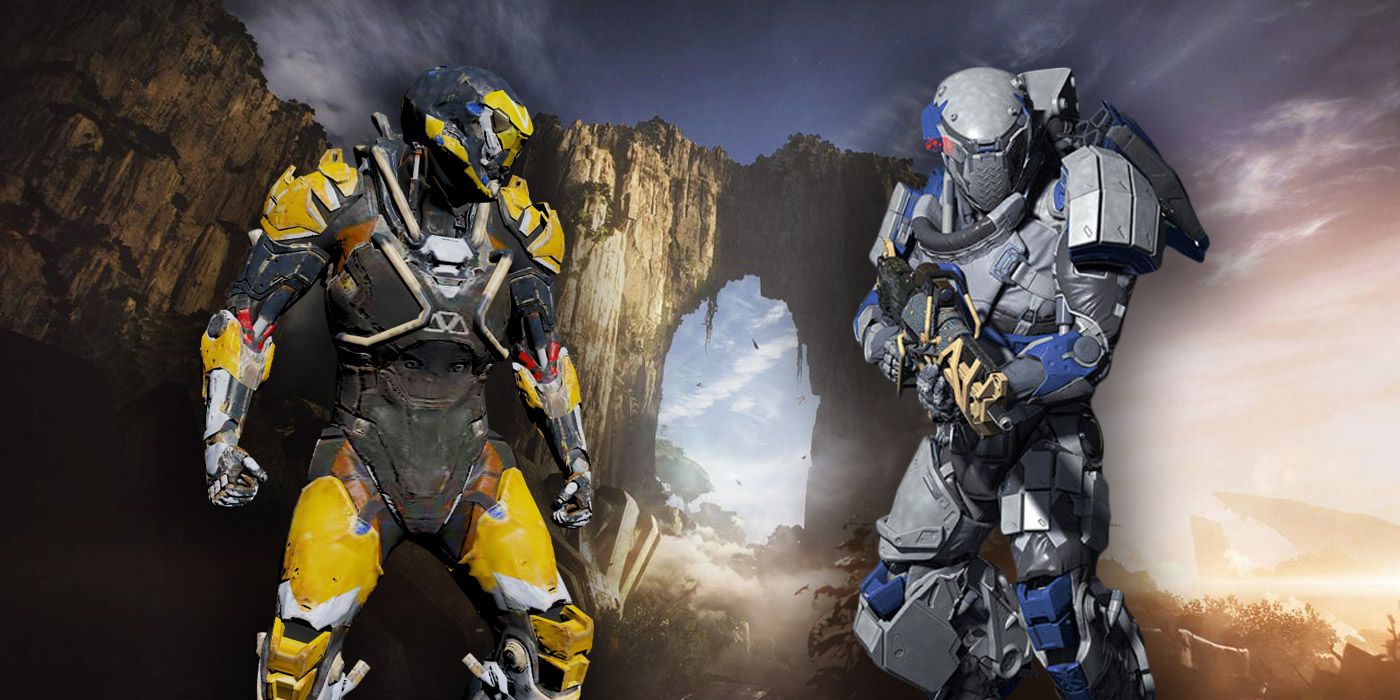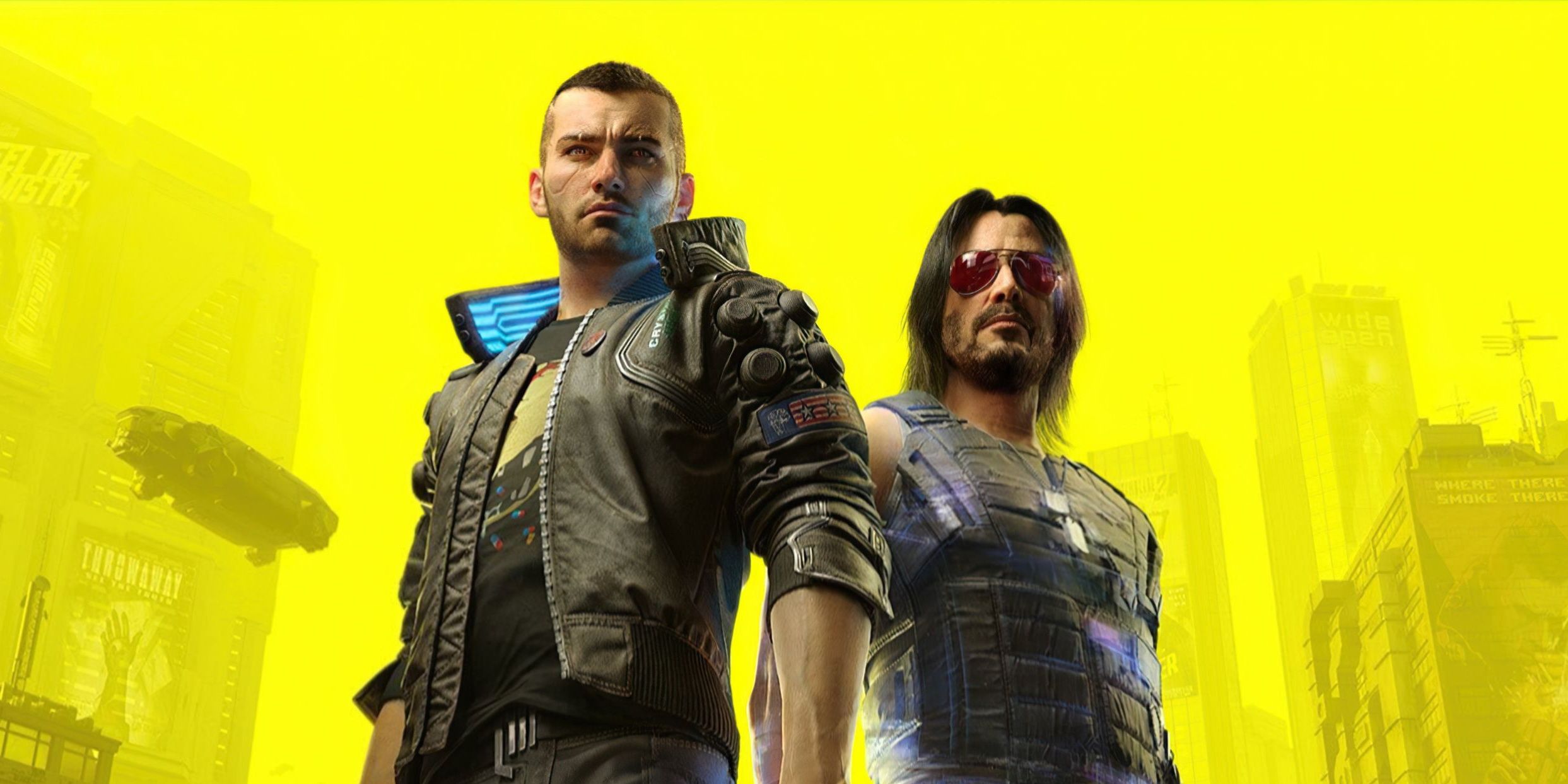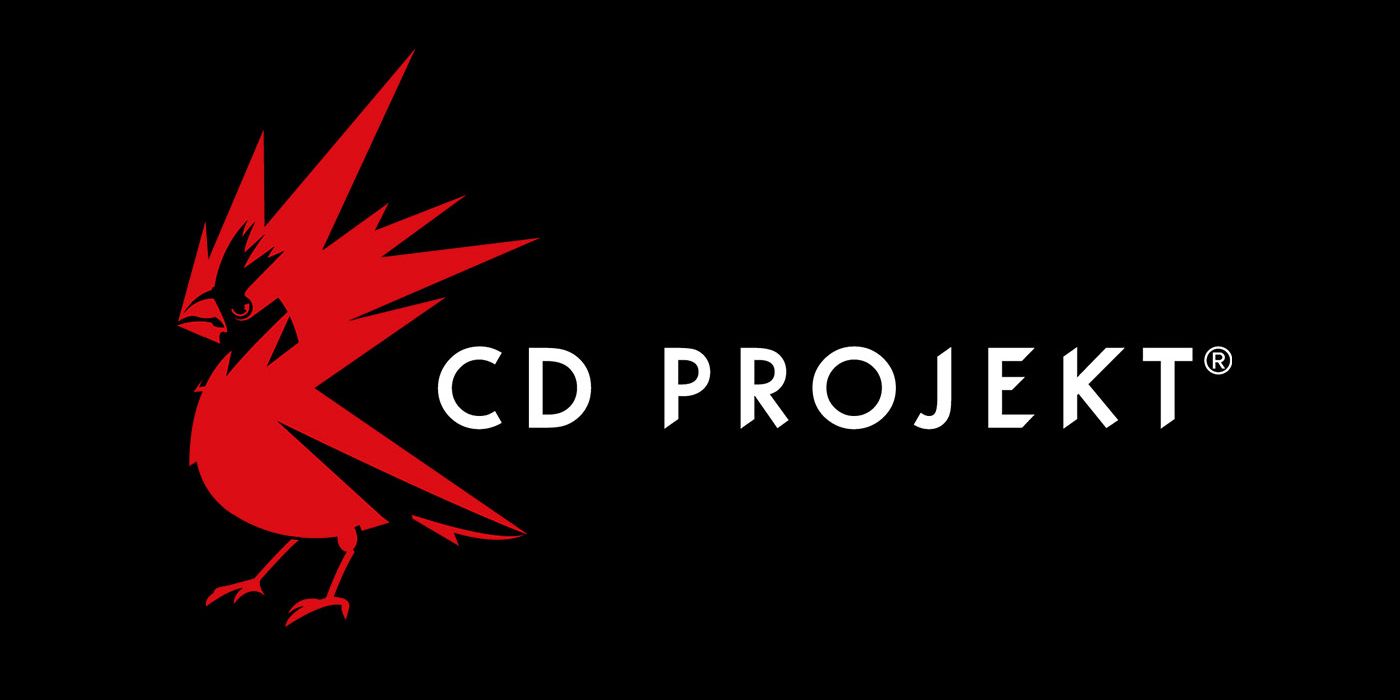Cyberpunk 2077 and Anthem Had a Very Similar Development

Cyberpunk 2077 has been on a long and rough road as far as development is concerned, so it's hard to imagine that any game's experience could compare to CD Projekt Red's latest project. Cyberpunk 2077 has seen the highest of highs and the lowest of lows, and its story is bound to be a point of reference for game studios everywhere for many years to come. However, BioWare's Anthem seems like it's actually rather comparable to Cyberpunk 2077 in a few regards. Anthem is another action RPG in a high tech setting, but that's only the beginning.
When comparing Cyberpunk 2077 and Anthem more closely, a lot of similarities appear besides the games' genres. Both games seem to have undergone long and fraught development processes where overconfidence and administrative moves led to the game's downfall. Even though the studios both had very firm faith in their games, neither quite lived up to the expectations of their fan bases. Everything from systemic misinformation to overwhelming crunches in development are shared between these games. Ideally, this is not the beginning of a trend. However, the two games have so much in common that it's impossible not to look a little closer.

One simple thing that Cyberpunk and Anthem have in common is that they were both conceived as early as 2012. Although a name wasn't provided at the time, Anthem was first teased when BioWare was undergoing some significant internal changes as veterans left the company. For a few years, the game—then known as Beyond—floated through development without making much progress. The game disappeared as quickly as it surfaced, and for a few years ,it would duck in and out of public view, with cryptic appearances like a teaser at E3 2014. BioWare was pushing interest in the game long before it made major progress in development.
Anthem eventually stabilized in the public eye around 2017, but fans now know that a lot of the information shared about the game around that point was misleading. BioWare turned a lot of heads thanks to Anthem's appearance at E3 2017, but it turns out Anthem was only in pre-production when this demo was revealed. Rather than representing what Anthem would be like, the trailer was what Anthem was designed on afterwards. Anthem had been languishing in development due to studio instability and technical challenges for many years. The E3 2017 trailer was made to please executives at EA, highly speculative and not grounded in the game's direction.
While fake content in trailers is commonplace, keeping fans and critics guessing, Anthem's situation is different. The studio wasn't preserving some secrecy or even show a solid vision, but desperately speculating on the game's content. BioWare leaned on the concept of "BioWare Magic" for Anthem to be a success. Internally, BioWare often believes that, no matter the challenges in development, games will magically come together in the end. Unfortunately, BioWare Magic didn't cut it this time; Anthem is now being completely overhauled.

Cyberpunk 2077's announcement was uncannily close to Anthem's first mention. CD Projekt Red revealed the game in May 2012, only a few months before BioWare first talked about Anthem. Just like Anthem, though, that announcement didn't turn out to be representative of Cyberpunk 2077's course of development. It's now known that the game didn't start pre-production until a few years later, even though a Cyberpunk trailer came out in 2013. CD Projekt Red clearly had a lot of faith in the project to have advertised it so early, and that came with consequences.
Fans and critics have also been up in arms since the games release when discussing CD Projekt Red's trailers and control of publicity. What's more, CD Projekt Red avoided enabling reviews of the PS4 and Xbox One versions of the game, seemingly trying to ensure that it would escape criticism. Cyberpunk 2077 didn't just mislead fans about some of the game's details—its bugs and performance problems were wholly obscured.
It seems that part of the reason CD Projekt Red's administrators managed the game this way was actually for a pretty similar reason to "BioWare Magic." This is the studio that gave its fans The Witcher, after all, and that seemed to be some overconfident statement of faith in itself. It wasn't hard for fans to take it for granted that CDPR had Cyberpunk under control after it displayed such prowess in the Witcher games. The studio seems to have done the same thing; reputation alone didn't deliver on Cyberpunk 2077.

BioWare and CDPR are now left scrambling to recover from their surprising missteps. It's a shame to see where these games have ended up, because truly it makes nobody happy to see their reputations marred this way. Both of these studios have been producing gems for many years, from The Witcher to Dragon Age to Mass Effect. It's clear that, in their excitement and ambition, these studios lost their way. The struggles and poor choices in the development of both these games will inform the studios' choices permanently. Perhaps more importantly, Anthem and Cyberpunk 2077 are likely to serve as a cautionary tale for the entire industry.
So many games of late have been announced many years before their likely release dates. Anthem and Cyberpunk 2077 have proven that announcements aren't always telling of a game's state of development. All these other studios who have revealed games that have many years of development ahead of them still should take note. No matter how famous a studio is or how impressive a game's premise is, no game benefits from crunch time. It's simply best to give a game plenty of time to be developed and get where it needs to be. Early trailers make promises that studios have to keep years down the line. Hopefully, the consequences that Anthem and Cyberpunk have faced will dissuade the industry from making their mistakes into a pattern.
Cyberpunk 2077 is available for PC, PS4, Stadia, and Xbox One. PS5 and Xbox Series X/S versions are in development.
Source: Bloomberg

Post a Comment